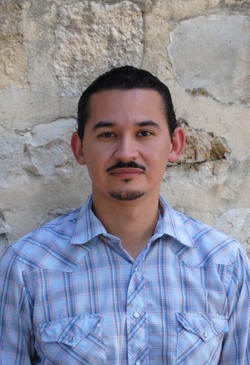 A successful writer knows how to bridge the gap between the individual and the greater world. Among the more common flaws in novice poets' work are obscurity and self-absorption, a lack of connectedness and empathy that prevents their poems from truly resonating with a reader. This kind of writing can be seen in workshops and open mics everywhere: it's a stage of development many of us traverse, and some never transcend. One of the things I love about Tomás Morin's poems is his quality of attention, his concern with larger questions and happenings. Morin has a roving, eager intellect, and his work is sophisticated without being solipsistic. This is evident in Morin's careful rendering of detail: in his eye towards his surroundings, and in the way he patiently guides a reader through a landscape, he demonstrates himself to be a devotee of empathy. It's a pleasure to read work that's so generous, and so thoroughly humane. The poem below previously appeared in Literary Imagination. * Winter after Abel Grimmer There is a church with a steeple and houses whose roofs mirror the slope of the church’s roof which is meant to dominate the center of the canvas; such was the nature of faith in the sixteenth century. If you lose interest in the architecture the snow will always yoke you back in, as will the barren trees that make your eyes dart from one to the other in search of a nest, a bird, a remnant of a bird even, and when you fail to accomplish even this small task you will turn to the ice and the skaters because there is nothing else to turn to and because there is certainty in their movements, and this comforts you, the slicing of smooth spirals and the hand-holding and the red noses— only there are no skaters as you had once thought and now you are confused and all you can see are the people being beaten with clubs and branches from the trees you had worried over, and then you notice the empty lake in the background, the greater body of water in the frame, and you tell yourself the ice will crack, the snow melt, and this is something which makes you feel better because it is a scene you have witnessed before. * Tomás Q. Morín was the winner of the APR/Honickman First Book Prize for his poetry collection, A Larger Country. He is co-editor with Mari L’Esperance of the anthology, Coming Close: 40 Essays on Philip Levine. His poems have appeared in Slate, Threepenny Review, Boulevard, New England Review, and Narrative. He teaches literature and writing at Texas State University. Comments are closed.
|
Archives
December 2021
Categories |

 RSS Feed
RSS Feed